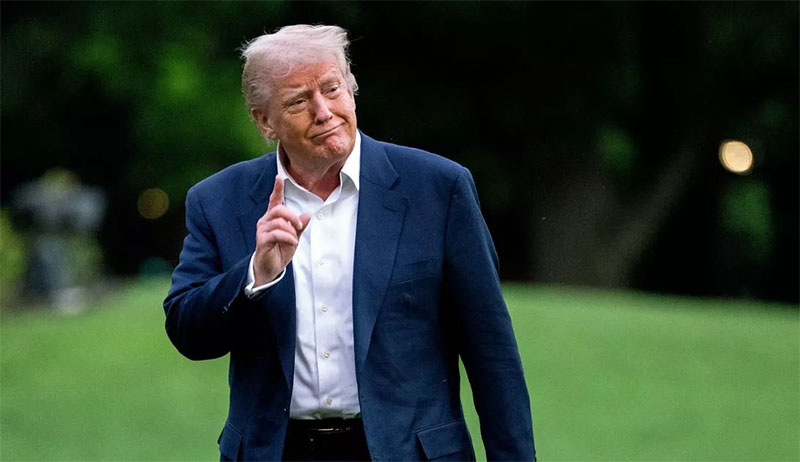Photo Credit: Getty Images
President Donald Trump announced a dramatic 100% tariff on foreign-produced movies entering the United States, framing the decision as a matter of national security. The May 4th announcement aims to combat what Trump described as the "very fast death" of America's movie industry.
"Other Countries are offering all sorts of incentives to draw our filmmakers and studios away," Trump stated on Truth Social. "This is a concerted effort by other Nations and, therefore, a National Security threat."
Commerce Secretary Howard Lutnick quickly confirmed the administration's commitment, posting "We're on it" on X. The Department of Commerce and United States Trade Representative have been instructed to "immediately begin the process" of implementing these tariffs.
Industry experts note that film production has been steadily migrating overseas for years. According to research firm ProdPro, approximately half of spending on high-budget movie and TV projects (over $40 million) occurred outside the U.S. in 2023.
Los Angeles has experienced a nearly 40% decline in production over the past decade, according to FilmLA. The January wildfires further intensified concerns about Hollywood's viability as a production hub.
Global competition for production has intensified with countries worldwide increasing credits and rebates to attract filmmakers. This competition contributes to the projected $248 billion in global content production spending for 2025, as forecast by Ampere Analysis.
Major media companies including Disney, Netflix, and Universal Pictures routinely film in countries like Canada and Britain, taking advantage of competitive tax incentives.
In January, Trump appointed Hollywood veterans Jon Voight, Sylvester Stallone, and Mel Gibson to help bring Hollywood back "bigger, better and stronger than ever before." Reports suggest Voight has been developing strategies to revitalize the entertainment industry.
Critical details about implementation remain unclear, including whether the tariffs would apply to streaming services and how they would be calculated. Hollywood executives were reportedly scrambling to understand the implications Sunday night.
William Reinsch, former senior Commerce official and Center for Strategic and International Studies fellow, warned that retaliatory measures could be devastating: "The retaliation will kill our industry. We have a lot more to lose than to gain."
This film tariff announcement follows a series of trade conflicts initiated by the Trump administration that have created market uncertainty and recession fears. Industry groups including the Motion Picture Association, which represents major studios, have not yet publicly responded to the announcement.
Hollywood producers and labor unions have previously urged California Governor Gavin Newsom to enhance state tax incentives to better compete with other filming locations, as California currently ranks sixth in preferred filming destinations behind Toronto, Britain, Vancouver, Central Europe, and Australia.


